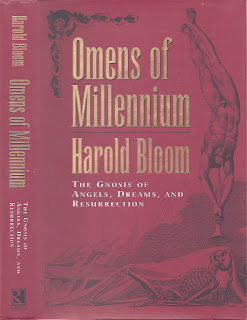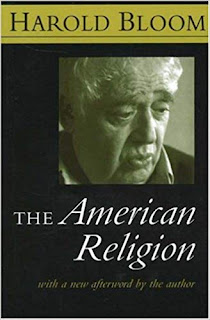The Mazeppist
A Transgressive Transcendentalist manifesto.
About Me

- Name: Sidi Hamid Benengeli
- Location: Dar ul-Falsafah, Colorado, United States
Part Irish, part Dervish, transgressive Transcendentalist, integral humanist.
Monday, December 31, 2018
Sunday, December 30, 2018
Saturday, December 29, 2018
Friday, December 28, 2018
Thursday, December 27, 2018
Tuesday, December 25, 2018
Monday, December 24, 2018
Saturday, December 22, 2018
Friday, December 21, 2018
Thursday, December 20, 2018
Tuesday, December 18, 2018
Coin Of The Realm

Yaldabaoth
You cannot expect a people lacking in self-respect to respect others.
When you consider the mass commodification of American life, and the general acceptance of this condition by the public at large, everything about this country (the fast-food culture, the deterioration of the educational system, the militarization of the economy, all of the self-delusional discourses of liberal democracy) makes perfect sense.
Yaldabaoth is in his heaven and Donald Trump is President; what else would you expect?
Saturday, December 15, 2018
Wednesday, December 12, 2018
Lawrence Durrell

Who are they, then, these people? They are those who are born and re-born again unlike the Many. They recognize each other when they meet without a word being exchanged. They belong to the vertigo of nothingness, having emerged from the root of all dissent. The thrust of their souls is towards the moon of non-being, their God is he who no longer exists. How can they hope to make themselves understood? Reason is powerless--for this kind of understanding can only be soundless, wordless, breathless. Its meaning is as precarious as reality itself.
~ Monsieur, p. 119.
Tuesday, December 11, 2018
Monday, December 10, 2018
Friday, December 07, 2018
Wednesday, December 05, 2018
Tuesday, December 04, 2018
Monday, December 03, 2018
Sunday, December 02, 2018
Saturday, December 01, 2018
A Bloomian "School" Of Religious Criticism

When Harold Bloom published Omens of Millennium in 1996, I bought it hot off the press and read it eagerly. I must confess, however, that my first reading of the book did not impress me favorably. At the time, I suspected that Bloom was venturing into waters beyond his depth and pandering to the popular taste for New Age mystifications for the sake of increased sales.
I have since re-read the book at least a half-dozen times and, with every reading, my admiration for it grows ever deeper. A fine, critical and academic appreciation may be found here.
All I wish to say at present is that Bloom's Omens is a superb example of the "religious criticism" he undertook with The American Religion and developed further with Jesus and Yahweh. Indeed, those three volumes, read as a trilogy, constitute (the author's own wishes to the contrary) the foundation of a Bloomian "school" of Religious Criticism.

























